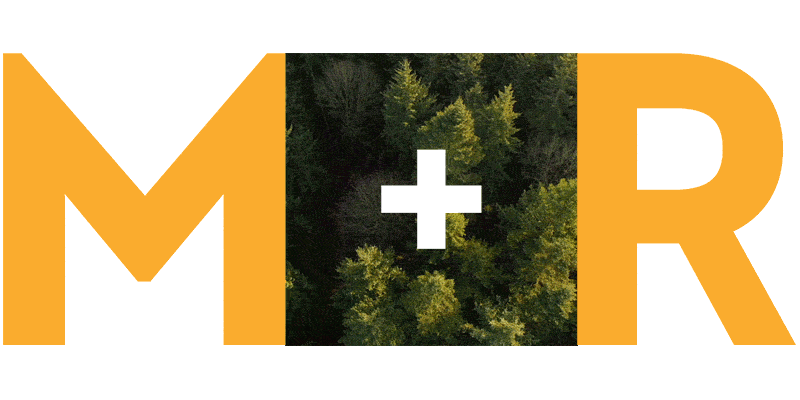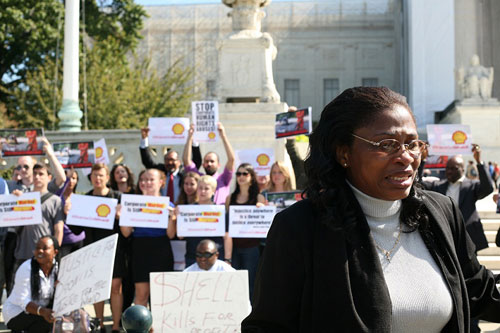Although United States Supreme Court justices are not subject to public pressure the same way Members of Congress are, public attention can help ensure that the justices look carefully at a case and consider its implications. When EarthRights International (ERI) approached us to run an awareness campaign around a landmark upcoming human rights Supreme Court case, we knew we would need to generate articles in major media outlets that the justices and their clerks read.
To reach our media goal, we reached out to select reporters and influential editorial boards to introduce them to the issue and put them in touch with the experts at EarthRights International. These briefings resulted in advance coverage by Reuters and established the organization as the go-to source as the case progressed. To keep the issue in front of the media before the hearing date, we also helped ERI create products to share with reporters and over social media like spoofs of logos of corporations that would literally get away with murder if the Supreme Court ruled against the human rights victims. As the hearing date neared, we sent successful feature pitches and planned newsworthy visibility events on the steps of the court, attracting photographers and reporters from The Washington Post, NPR, AP and NBC News.
Our aggressive media strategy ensured that nearly every major news outlet covering the Supreme Court listed Kiobel v Shell as one of the most important cases of the court’s new term. At the campaign’s peak, we reached 300 million media impressions in just one week. The ruling has not yet been released, but in the words of EarthRights International’s co-founder, we won in the court of public opinion.
The reporter relationships we developed over the course of the campaign led to significant coverage from publications like The New York Times, Washington Post, Wall Street Journal, USA Today, NPR, The Economist, Associated Press, Reuters, Los Angeles Times, SCOTUSblog, Forbes, Bloomberg Businessweek, The New Republic, Slate, Huffington Post, UpWorthy, PBS NewsHour, and ABC News.
Our editorial board outreach and op-ed submissions resulted in a placement by Desmond Tutu in USA Today and editorials on the day of the hearing in The New York Times, Wall Street Journal and three Indiana papers – Justice Robert’s home state.



